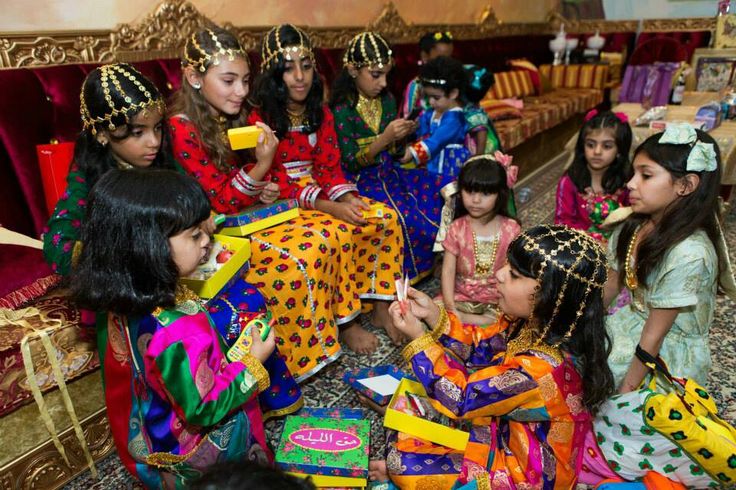In the intricate tapestry of Islamic traditions, the month of Shaban holds a unique and revered position. As the eighth month of the Islamic lunar calendar, Shaban is more than just a time marker; it’s a period of spiritual reflection, preparation, and deepening one’s connection with Allah. This article delves into the significance of Shaban, exploring its historical roots, religious practices, and cultural importance within the Muslim community.
Table of Contents
– The Historical and Religious Background of Shaban
– The Spiritual Significance of Shaban
– Fasting in Shaban: A Path to Preparation for Ramadan
– The 15th Night of Shaban: Shab-e-Barat
– Cultural Practices and Traditions in Shaban
– Shaban as a Bridge to Ramadan
– Frequently Asked Questions About Shaban
The Historical and Religious Background of Shaban
Shaban is the second month of worship in the Islamic calendar, following Rajab and preceding Ramadan. It is known as the “month of the Prophet” due to the numerous Hadiths that highlight the special attention given to this month by Prophet Muhammad (PBUH). According to Islamic tradition, Shaban is a sacred month where the deeds of Muslims are presented to Allah, making it an opportune time for increased devotion and acts of worship.
The name “Shaban” is derived from the Arabic root “sha`a ba,” which means “branching” or “separation.” Historically, Arab tribes would disperse during this month to search for water and prepare for the heat of summer. This dispersal symbolizes the transition from the sacred month of Rajab to the holy month of Ramadan, serving as a metaphorical bridge between these two significant periods.
The Spiritual Significance of Shaban
Shaban is considered a month of spiritual preparation, where Muslims are encouraged to increase their acts of worship, seek forgiveness, and engage in charitable deeds. The Prophet Muhammad (PBUH) emphasized the importance of this month, stating, “Shaban is my month, Rajab is Allah’s month, and Ramadan is the month of my Ummah.” This statement underscores the unique role Shaban plays in the Islamic calendar, highlighting its significance as a time for personal growth and spiritual renewal.
One of the most notable aspects of Shaban is the night of Shab-e-Barat, which falls on the 15th of the month. This night is considered a time of divine mercy and forgiveness, where Muslims believe that Allah descends to the heavens and grants blessings to those who seek His forgiveness. Many Muslims spend this night in prayer, reciting the Quran, and performing acts of charity.
Fasting in Shaban: A Path to Preparation for Ramadan
Fasting during Shaban is highly recommended as it serves as a preparatory phase for the holy month of Ramadan. The Prophet Muhammad (PBUH) used to fast extensively during this month, stating, “It is a month where people tend to neglect, between the months of Rajab and Ramadan. It is a month in which the deeds are raised to the Lord of the worlds, and I like my deeds to be raised while I am fasting.” This Hadith emphasizes the importance of fasting in Shaban as a means of increasing one’s spiritual connection with Allah.
Fasting in Shaban not only helps Muslims develop self-discipline but also prepares them for the rigorous fasting of Ramadan. By fasting during Shaban, individuals can gradually build up their endurance and deepen their understanding of the spiritual significance of fasting.
The 15th Night of Shaban: Shab-e-Barat
The 15th night of Shaban, known as Shab-e-Barat, is a significant event in the Islamic calendar. On this night, Muslims believe that Allah grants forgiveness to those who sincerely repent and seek His mercy. This night is often marked by special prayers, recitations of the Quran, and acts of charity. Many Muslims also visit the graves of their loved ones to offer prayers and seek blessings for the deceased.
According to Hadith, the Prophet Muhammad (PBUH) said, “Our Lord descends to the lowest heaven on the night of the middle of Sha’ban and forgives the occupants of the Earth except for the one who associates partners with Allāh and one who harbors enmity.” This statement highlights the importance of Shab-e-Barat as a night of divine mercy and forgiveness.
Cultural Practices and Traditions in Shaban
While the religious significance of Shaban is well-documented, the cultural practices associated with this month vary across different regions and communities. In some areas, families gather to share traditional meals, exchange gifts, and participate in community events. These practices reflect the deep-rooted cultural heritage of the Muslim community and serve as a way to strengthen family and community bonds.
In addition to these cultural practices, many Muslims use the month of Shaban as a time for introspection and self-improvement. They may set personal goals, engage in acts of charity, and seek guidance from religious scholars to deepen their understanding of Islam.
Shaban as a Bridge to Ramadan
Shaban serves as a crucial bridge between the sacred month of Rajab and the holy month of Ramadan. It is a time for Muslims to prepare spiritually and physically for the upcoming month of fasting. The Prophet Muhammad (PBUH) described Shaban as a month of cultivation, where good deeds and charity should be planned, and Ramadan as the month of harvesting, where the rewards of these deeds are enjoyed.
This metaphorical relationship between Shaban and Ramadan underscores the importance of using Shaban as a time for reflection, repentance, and preparation. By engaging in acts of worship and seeking forgiveness during Shaban, Muslims can ensure they are spiritually ready to embrace the blessings of Ramadan.
Frequently Asked Questions About Shaban
When will the Shaban month begin in 2024? The month of Shaban 2024 will last from February 11 to March 22.
What is the date for Shab-e-barat or 15th Shaban in 2023? The date for Shab-e-barat in 2023 was March 8.
What can an individual do in Shaban? People should fast, perform charity, and do good deeds in Shaban.
Which is the month in which qibla was changed? Qibla was changed from Al Aqsa to Al Haram in Shaban.
What is the meaning of Shaban? Shaban is the eighth month of the lunar calendar, which means separation or dispersion.
What is the significance of the Islamic month of Shaban? Shaban is the month of preparation for the month of Ramadan. Therefore, Muslims fast and indulge in devotional activities.
Is there a specific religious importance attached to the 15th night of Shaban? It is considered a night of special significance and blessings. Many Muslims believe that on this night, Allah decrees the destiny of individuals for the coming year, forgives sins of those who repent sincerely, and grants His mercy and blessings. As a result, Muslims often engage in extra acts of worship and seek forgiveness during this night.
How does the observance of Shaban differ from other Islamic months?
Are there any recommended acts of worship or special prayers during the month of Shaban? The acts that Muslims engage in are fasting, prayers, charity, and repentance.
Conclusion
Shaban is a month of profound spiritual significance in the Islamic calendar. It serves as a time for preparation, reflection, and deepening one’s connection with Allah. Through fasting, prayer, and acts of charity, Muslims can harness the blessings of Shaban to strengthen their faith and prepare for the holy month of Ramadan. As the Prophet Muhammad (PBUH) emphasized, Shaban is a month of great importance, where the deeds of Muslims are presented to Allah, making it an ideal time for increased devotion and spiritual growth.
Stay updated with the latest news about Islamic traditions and practices. Explore today’s headlines to learn more about the significance of Shaban and other important Islamic months.














More Stories
Understanding Shawwal Month: Significance, Traditions, and Islamic Observances
Understanding Shawwal: The Tenth Month of the Islamic Calendar
US Trending News: Is Yoga Demonic? Exploring the Religious and Cultural Controversies